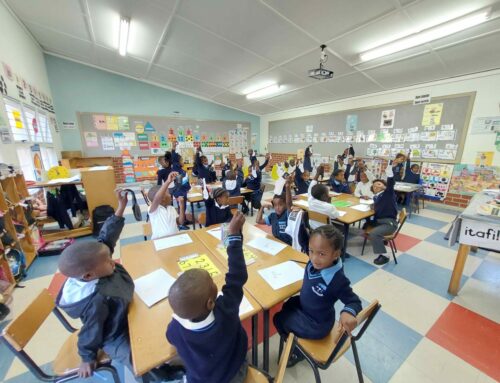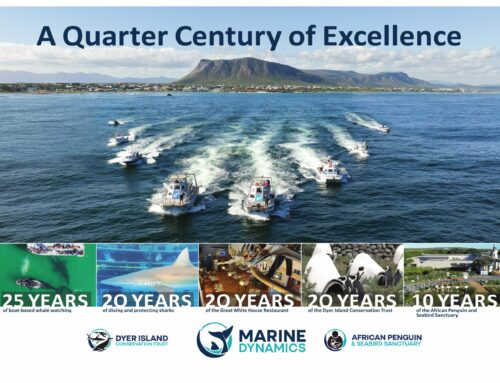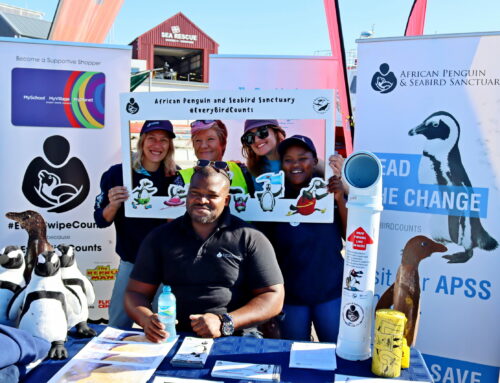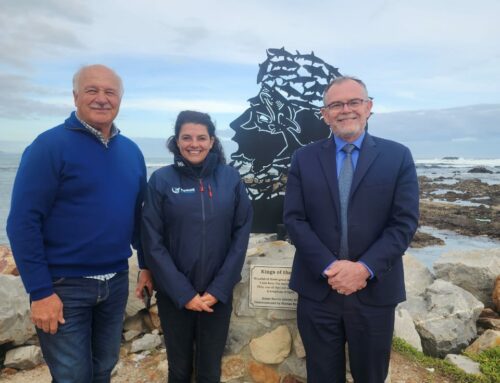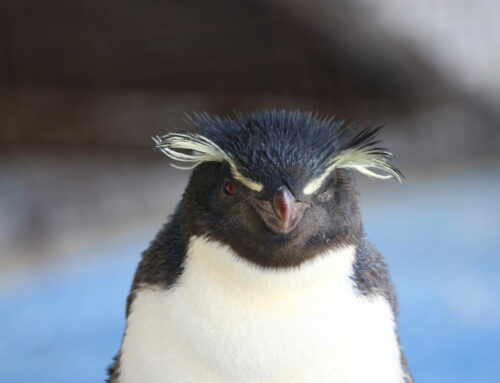Between the 17th to 19th of November 2021, over 80 delegates comprising of marine biologists, researchers, students, conservationists, and government officials gathered in Gansbaai for the 6th Southern African Shark and Ray Symposium. Hosted by the Dyer Island Conservation Trust and Marine Dynamics Shark Tours, this biennial meeting of the academic community provided an opportunity for research updates, collaboration, and inspiration. The symposium attracts delegates from various countries, and this year they hailed from Mozambique, Ghana, Reunion, South Africa, UK, and more.
The event was held at Panorama Farm, a venue that allowed for adequate spacing and ventilation. The Save Our Seas Foundation was a key sponsor for this event, with CEO James Lea flying in from the UK to participate with the local team from the Shark Education Centre in Kalk Bay, whilst Cape Whale Coast Tourism was a supporting partner. The theme “Catalyst of Change: Post-pandemic research on Southern African Chondrichthyans” was chosen because for many scientist’s research had often been halted due to lockdowns or travel restrictions, whilst others found the opportunity to do work that they had long been wanting to get to.
Wilfred Chivell, CEO of Marine Dynamics and founder of the Dyer Island Conservation Trust, was pleased to be able to host the event in Gansbaai and opened saying, “We have wanted to host this conference for the last few years and we are so happy to be doing so in what is traditionally known as the white shark capital of the world. Our extensive research over the past two decades has made a considerable difference to our understanding of this species and can and will influence conservation policy at government level. Although our world has changed even more dramatically over the last couple of years, the sea has not had a break, and now more than ever to we need to come together to share our knowledge, and it is my hope that meaningful dialogue will take place that will have an important influence on the future of our sharks and rays.”
There were two days of presentations from researchers, covering a multitude of topics under the various themes of telemetry and movement, genetics and identification, shark and human interaction, conservation, and fisheries, and even shark tourism and its associated benefits. Many of the species being studied are of conservation concern. TRAFFIC, the organization that monitors the trade in wild animals and plants, showcased the 3D fin replicas that will assist in training customs officials for more effective and knowledgeable monitoring, and interference with illegal poaching activities.
Key speakers opened each day of the symposium. Dr Charlene da Silva from Department of Forestry, Fisheries, and Environment (DFFE), focused her talk on the pros and cons of charismatic driven conservation messaging, and how often smaller and even more valuable species can be overlooked as a result of this. “The proliferation of conservation programmes and targeted messaging through social media has dramatically transformed the image of charismatic predators such as white sharks from monster to conservation symbol. Whilst largely a positive development, the overwhelming media on one already protected species has the unintended consequence of deflecting attention and resources away from species that are not,” said da Silva.
Dr Andrea Marshall, of the Marine Megafauna Foundation in Mozambique discussed how the global pandemic influenced their work on the continent through her talk entitled ‘Saving Africa’s Ocean Giants from Extinction’. The Inhambane province of Mozambique is a globally significant area for iconic marine megafauna, particularly manta rays, whale sharks, and dugong, and the MMF works to safeguard threatened and economically important species in southern Mozambique by reducing threats in the region and helping to protect critical habitats and important aggregation areas. The pandemic afforded some time to refocus on their objectives.
A big topic at the symposium was the National Plan of Action for sharks, with the government (DFFE) presenting a new draft for the way forward. This was discussed in groups under the direction of the WildOceans workshop: Second Southern African Shark Conservation Forum Meeting, led by Executive Director Jean Harris.
Dr Taryn Murray and Matt Parkinson of the South African Institute of Aquatic Biodiversity (SAIAB) led a workshop on the Acoustic Tracking Array Platform, a collaborative array of listening devices that covers thousands of kilometres off the southern African coast, picking up the movements of tagged fish and shark species. Dr Clova Mabin and Jade Schultz of Save Our Seas Foundation led a science communication workshop that encouraged all to focus on their strategies to better achieve their goals.
The symposium included an icebreaker evening where the Dyer Island Conservation Trusts’s Environmental Education Programme, known as DEEP, sang and danced. A gala evening on the second night was hosted by Chef Chris Pead and his team from the Great White House, who handled all catering for the event. The symposium was closed with a quote from renowned marine biologist and ocean explorer, Dr Sylvia Earle, “We are equipped with the superpower of knowing. We are one species with an oversized impact, an oversized responsibility and I’d say an oversized opportunity to take what we now know and act.”
The symposium moves from one organisation to another in South Africa, and a call will be put out soon for delegates to nominate where the next one will be held in South Africa.
The full programme of events can be viewed on www.sharkandraysymposium.com
Special thanks to: Save Our Seas Foundation, Marine Dynamics Tours, Great White House, Cape Whale Coast, Gansbaai Tourism, Panorama Farm, Lomond Wine, Leon Carstens.
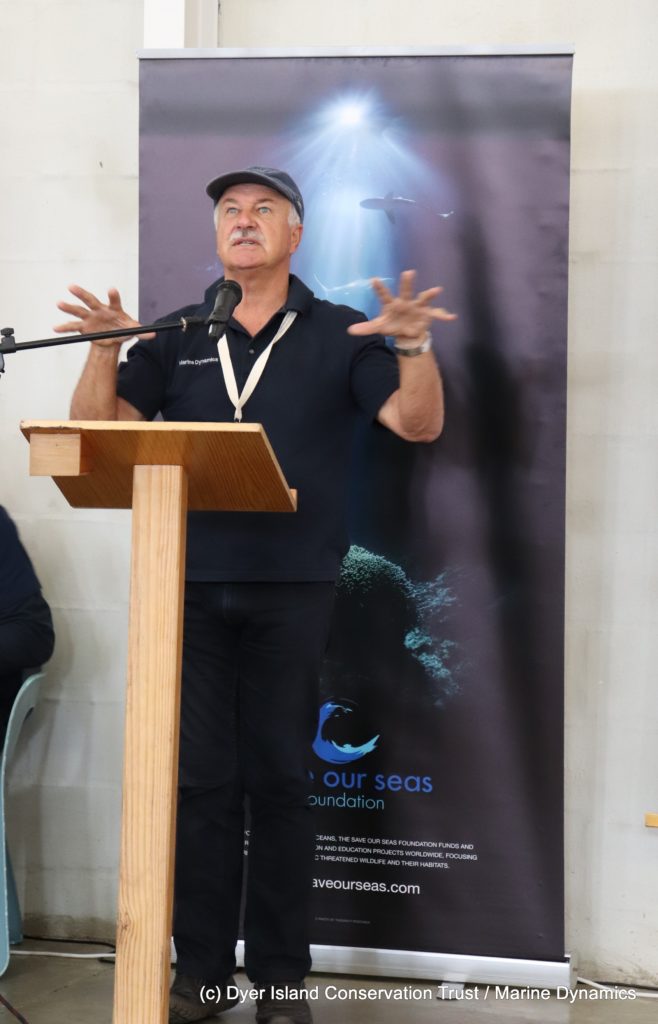
Wilfred Chivell opened the Shark and Ray Symposium
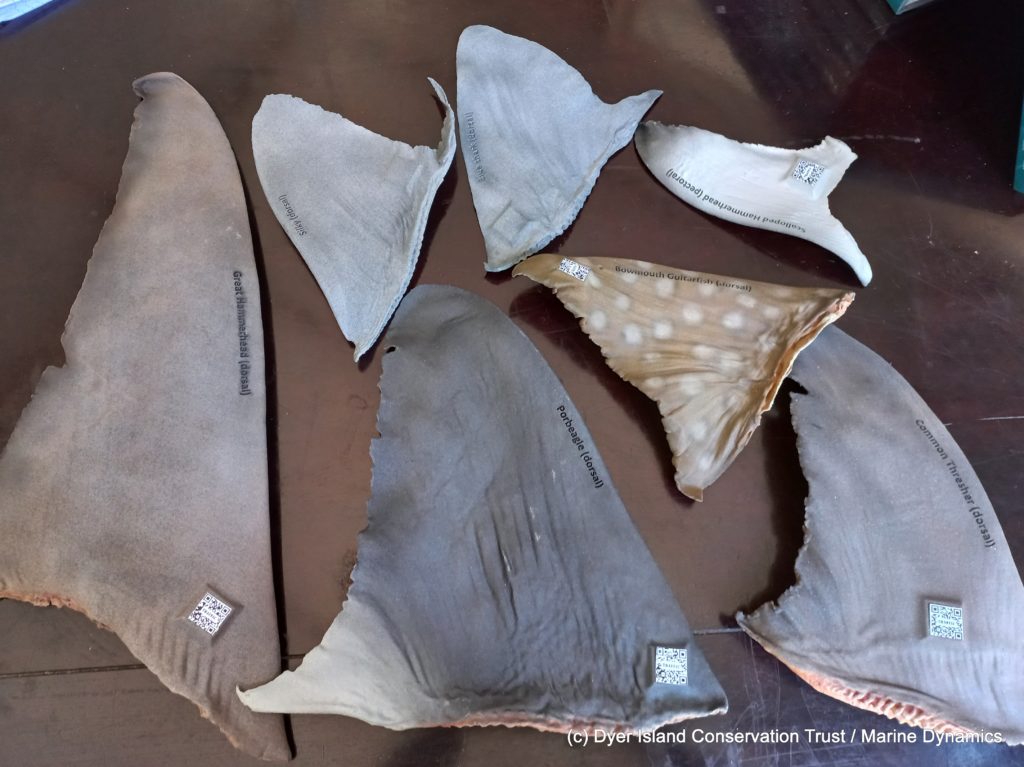 TRAFFIC 3D Fin Replicas
TRAFFIC 3D Fin Replicas
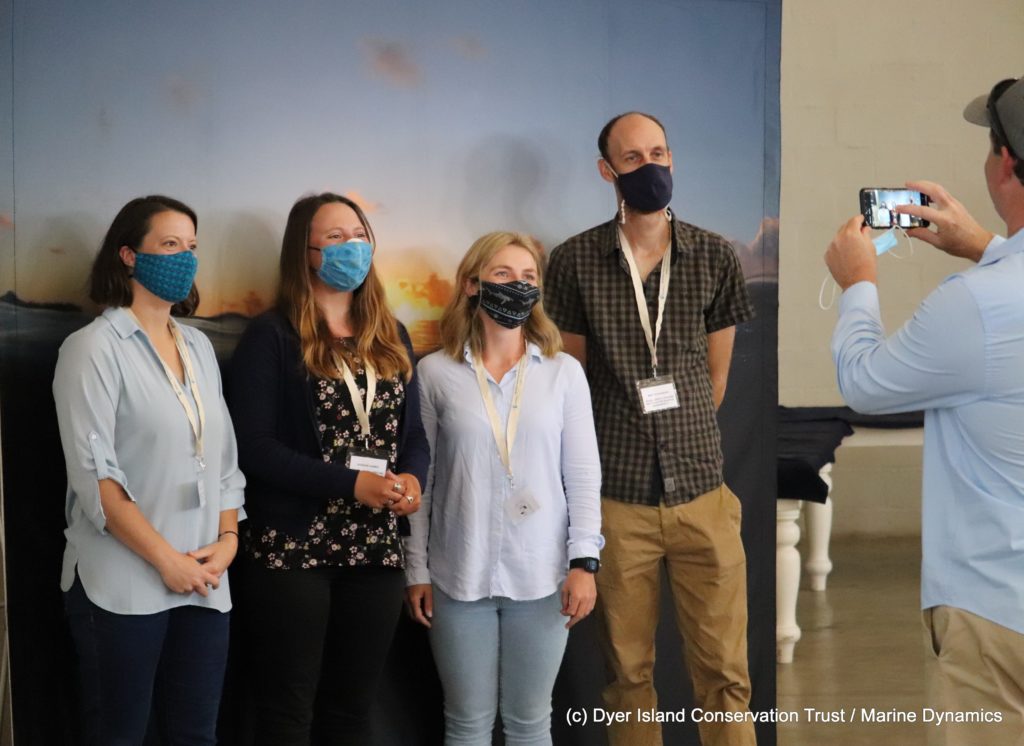 Team South African Institute for Aquatic Biodiversity
Team South African Institute for Aquatic Biodiversity
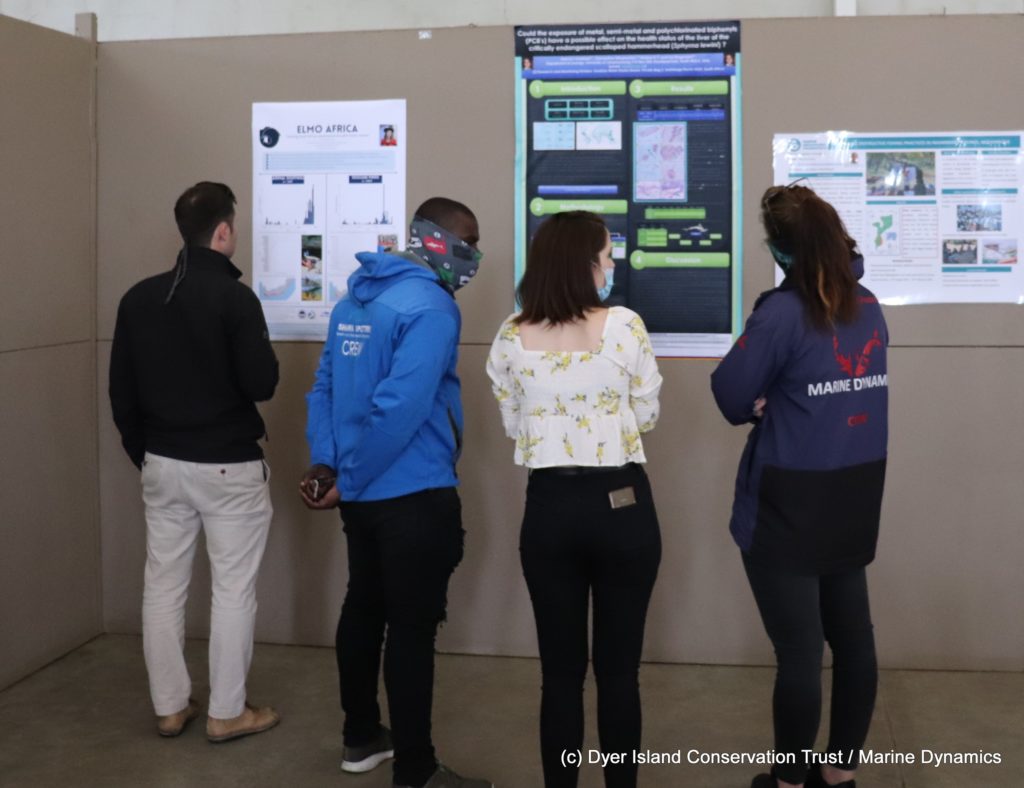 Poster Session
Poster Session
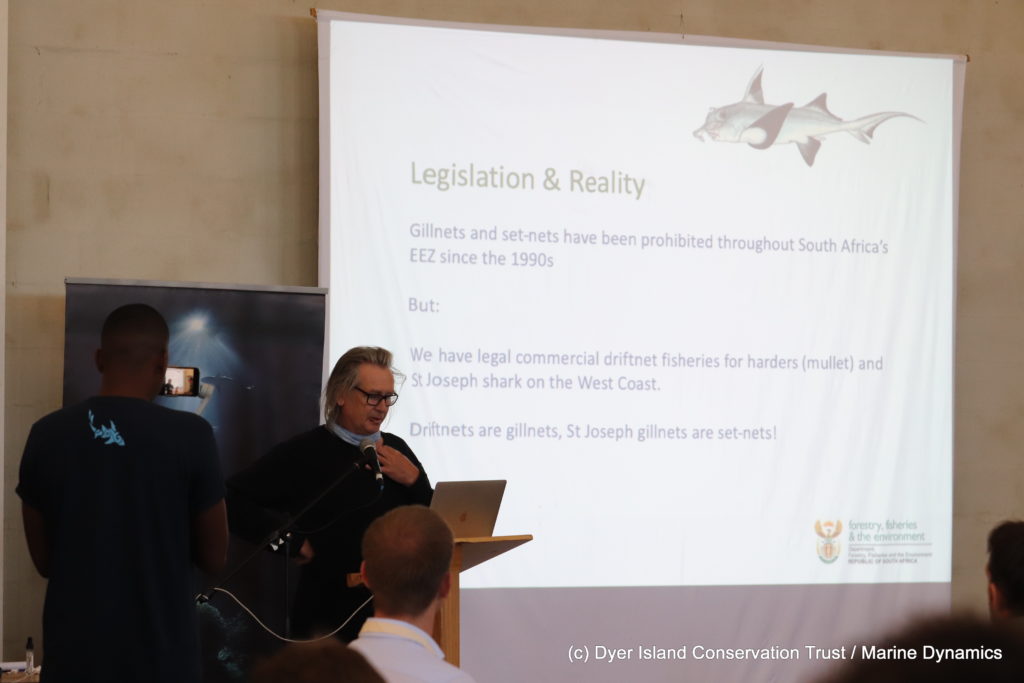
Dr. Stephen Lamberth, Department of Forestry, Fishery, Environment, addresses the issue of illegal gillnets
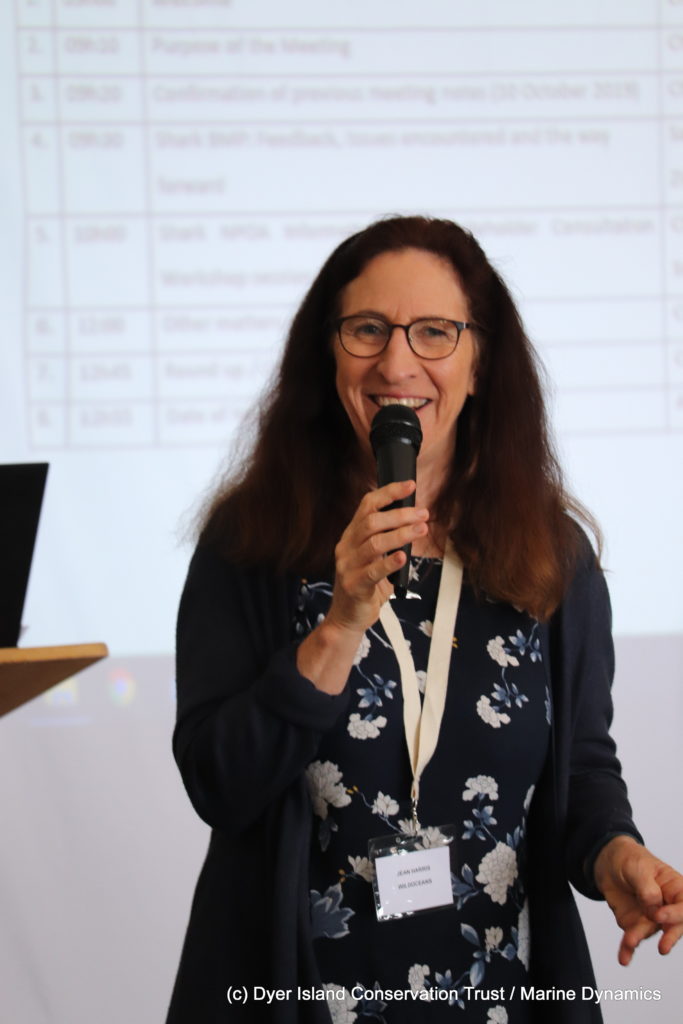
Dr. Jean Harris, Executive Director of WildOceans
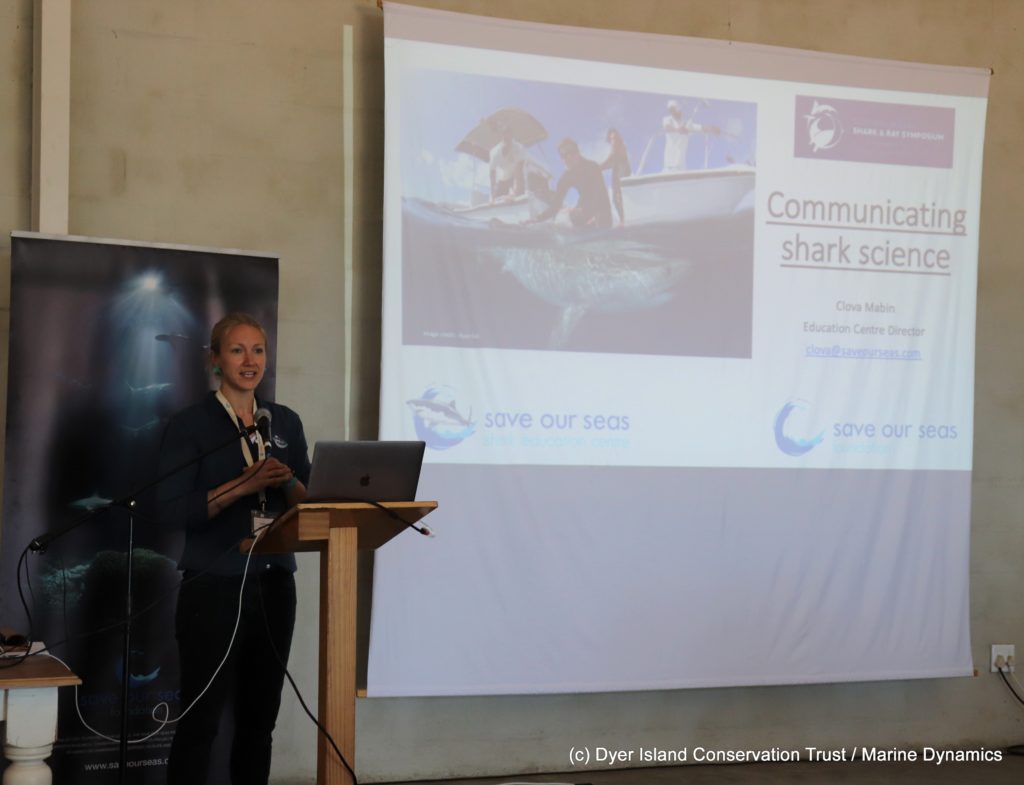 Dr Clova Mabin of Dave Our Seas Foundation presenting a workshop on Communicating Shark Science
Dr Clova Mabin of Dave Our Seas Foundation presenting a workshop on Communicating Shark Science
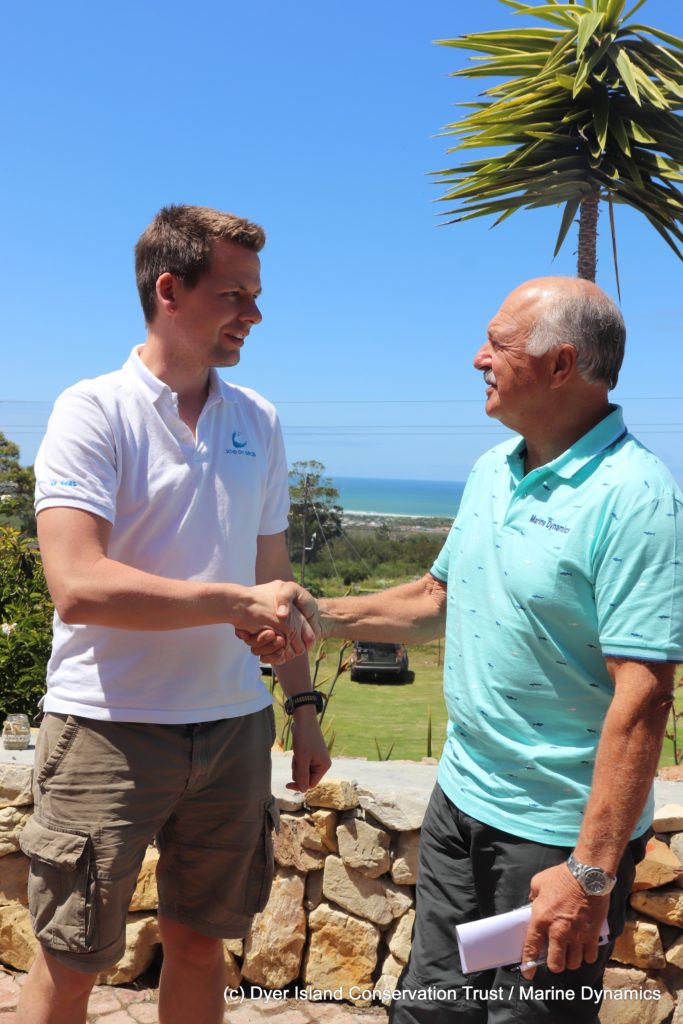 CEO of Save Our Seas Foundation, James Lea and CEO of Marine Dynamics, Wilfred Chivell
CEO of Save Our Seas Foundation, James Lea and CEO of Marine Dynamics, Wilfred Chivell
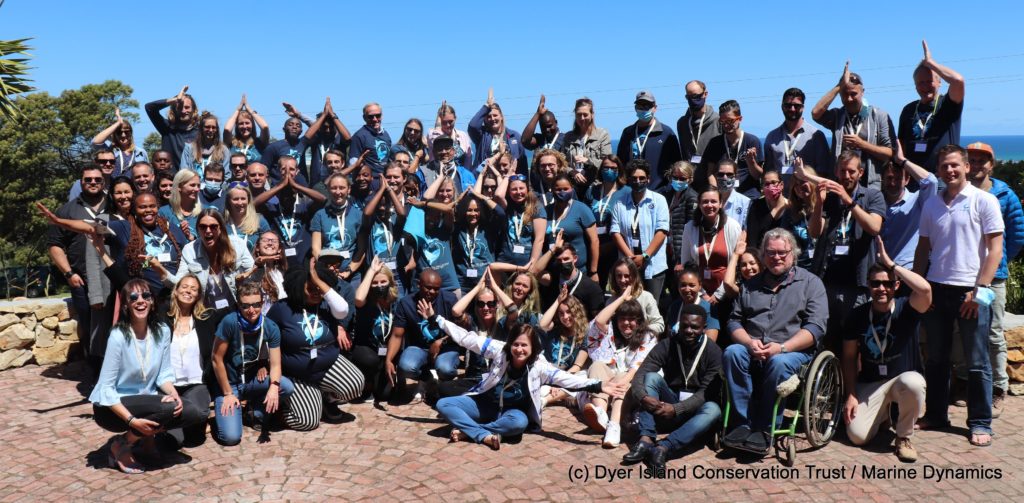
6th Southern African Shark and Ray Symposium delegates

